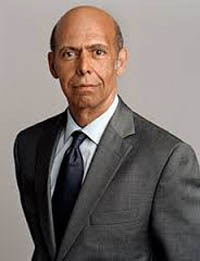During the address, UNCF president and CEO Dr. Michael L. Lomax called on federal policymakers to make significant investments in HBCU infrastructure and innovation, reform financial aid and evaluate regional accreditors’ treatment of HBCUs. UNCF also released its new Congressional Honor Roll, a list that currently recognizes 59 members of Congress who go above and beyond in their policymaking and support for HBCU success.
 Dr. Michael L. Lomax
Dr. Michael L. Lomax
“The state of our HBCUs is resilient,” Lomax said. “In spite of obstacles and barriers, assaults and attacks, underinvestment and devaluation … they persist.”
Lomax noted that while HBCUs “punch above their weight,” they are often compared with some of the oldest and most well-resourced institutions in higher education. It would be 201 years after Harvard University’s founding in 1636 that the first HBCU, Cheyney University, would be established, and another 30 years before more colleges would rise to educate Black citizens, he said.
“That is 250 years of systemic exclusion of Black people from education,” Lomax said, noting that educational inequality is a mirror image of the wealth gap in American society at large. “We cannot be complacent when so much is needed” to catch up to older institutions.
But “make no mistake, our aspirations are to lead not to follow,” Lomax urged.
UNCF’s charge to Congress follows the organization’s past year of legislative advocacy, which brought more than $100 million in additional federal funding to HBCUs, increased funding and services for low-income and first-generation students and oversaw the passing of the first comprehensive criminal justice reform bill.
Celebrating its 75th anniversary this year, UNCF will build on their efforts by urging Congressional action on several items for the 116th Congress:
-Increase Title III Part B funding in the amount of $100 million to enable HBCUs to use funding to meet the needs of their institutions;
-Extend annual mandatory funding of $85 million for a decade for the Strengthening HBCUs Program, an initiative to increase the number of minorities in science, technology, engineering and mathematics (STEM);
-Appropriate $1 billion for HBCU’s infrastructure to preserve and upgrade the historic institutions, improve technology and expand capacity;
-Double the Pell Grant award for students to pursue their degrees without burdensome or crippling student loan debt;
-Review the procedures and decisions of higher education regional accreditors to offset the “harsh, seemingly disparate [and] too often existential punishing sanctions handed out to historically Black colleges and universities,” Lomax said.
These priorities represent longstanding matters that require immediate attention if HBCUs are to thrive, not merely survive, he added.
 U.S. Rep Alma Adams speaks at the UNCF event.
U.S. Rep Alma Adams speaks at the UNCF event.
“Among the many contributions that HBCUs have made to this country, HBCUs are the engines that help power and deliver much-needed economic and workforce diversity,” he said. “By that standard alone, our institutions are worth the federal investment we are asking for today.”
In addition to Lomax, those in attendance heard from several Congress members who made this year’s Congressional Honor Roll, including Rep. Alma S. Adams, D-NC, and Sen. Tim Scott, R-SC.
Dr. Henry N. Tisdale, president of Claflin University, said HBCUs like his are engines of “immense social and economic impact in their communities.”
“But we cannot carry out this work without federal support,” he said. “The new UNCF honor roll list enables institutional leaders, faculty and students to gauge the support of their elected officials and give them another tool with which to advocate.”
Florida Memorial University interim president Dr. Jaffus Hardrick shared similar sentiments and added that the institution looks forward to working with the state’s senators, representatives and UNCF to support the HBCU agenda and advance their priorities.
“We also appreciate the support and leadership of U.S. Representatives Frederica Wilson and Alcee Hastings,” Hardrick said.
Lodriguez Murray, UNCF’s vice president of public policy and government affairs, said the new Congressional Honor Roll shows that higher education is a bipartisan issue as is supporting HBCUs.
“Our goal is simple: work with all members of Congress to build on what we did last year …. During a time, when college is increasingly more unaffordable and student debt is growing, HBCUs continue to represent a tremendous value and opportunity for many students and families.”
Tiffany Pennamon can be reached at [email protected]. You can follow her on Twitter @tiffanypennamon.















